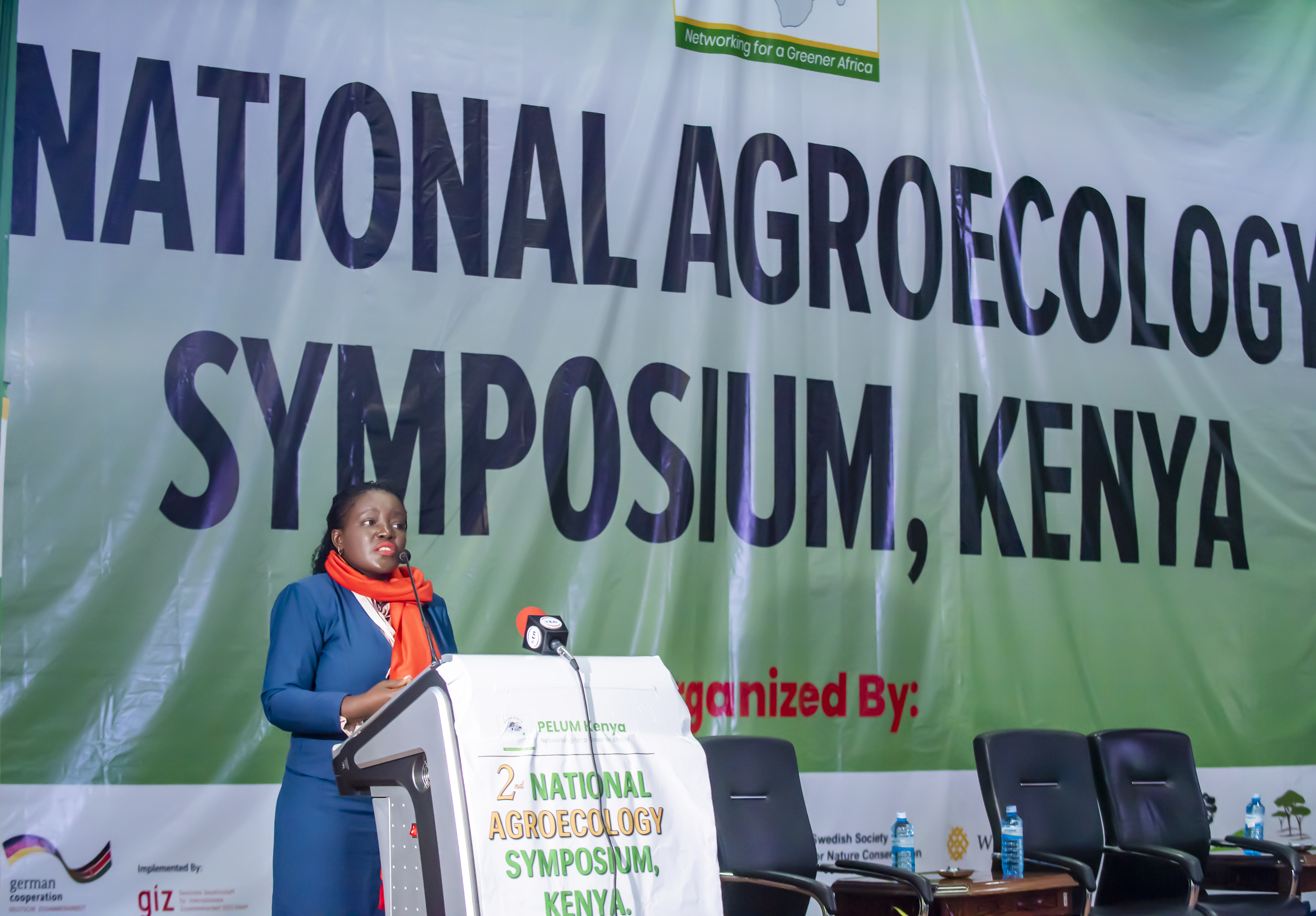
The call was made during the second National Agroecology Symposium held in Nairobi, which brought together over 400 stakeholders from across the country and beyond.
It was organised by the Participatory Ecological Land Use Management (Pelum) Kenya, a national network of organisations that promote agroecological principles through training, advocacy, market development, and support to small-scale farmers.
Pelum country coordinator Rosinah Mbenya said agroecology has been proven globally to support climate change adaptation, restore degraded soils, and strengthen local food systems, but still receives far too little attention and funding.
“Agroecology is a proven solution for climate adaptation and mitigation. Yet, it receives less than two per cent of global climate finance. That must change if we are serious about solving the crises we face,” she said.
Mbenya said while agriculture is responsible for up to 25 per cent of global greenhouse gas emissions, sustainable farming systems like agroecology can reverse the trend, if properly supported.
She urged African governments to fulfill the Malabo Declaration by allocating at least 10 per cent of national budgets to agriculture, with a focus on climate-smart practices.
Pelum Kenya currently works with a network of 63 organisations reaching over one million small-scale farmers, many of whom are already applying agroecological practices such as composting, bio-input production, seed saving, and livestock integration.
"These are not just farmers, they are knowledge holders and ecosystem caretakers. They deserve to be at the centre of policies and budget decisions,” Mbenya added.
She also called for more support from the private sector and development partners to help scale up bio-inputs and sustainable practices that are safe, affordable, and profitable for farmers.
World Resources Institute country director Susan Chomba echoed the urgency, warning that Kenya’s food production system remains vulnerable due to reliance on monoculture farming.
“Monocultures are risky. Diversified farming systems, mixing crops like maize, cassava, and beans, offer better protection from climate shocks like drought,” she said.
Chomba emphasised the need for data-driven decision-making and innovative financing, highlighting projects in Kenya’s Rift Valley where farmers are earning income from carbon and biodiversity credits.
She noted that agroecology, which supports biodiversity and soil health, is critical to building resilient and food-secure communities.
She also praised youth-led enterprises that are turning organic waste into biofertiliser, reducing reliance on costly chemical inputs.
"Farmers know their soils are dying. Many are already adopting organic manure, liming, and pest management. What they need now is help to scale up these solutions,” she said.
Livestock Principal Secretary Jonathan Mueke, in remarks delivered on his behalf by Agricultural Engineering Secretary Laban Kiplagat, said the government is committed to turning the symposium’s outcomes into concrete action.
"This is not just a platform for discussion. The ministry is ready to take up the recommendations and turn them into real, practical solutions.”
He reaffirmed the government’s backing of the National Agroecology Strategy (2024–2033), which is being implemented jointly with county governments.
He also acknowledged the funding gap in the sector and assured that the government would explore increased budget allocations and innovative financing mechanisms to support agroecological transformation.
"We believe that collective action is vital to achieving the ambitious goals set for agroecology in Kenya,” he added.
Biovision Africa Trust executive director David Amudavi said Kenya ranks among Africa’s top 10 countries in organic farming adoption, but the number of certified agroecological producers, just 62,000, remains low compared to the country’s farming population.
“We need stronger data systems to capture the real adoption numbers, which are likely much higher. The African Union is already supporting this shift through continental frameworks,” Amudavi said.
The symposium, which brought together over 400 stakeholders from across the country and beyond, ended with a renewed call for policy alignment and private sector involvement.
Participants also urged for increased financing to scale up agroecology across Kenya and unlock its full potential for people, planet, and prosperity.











